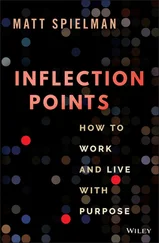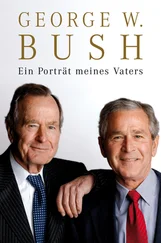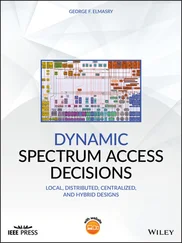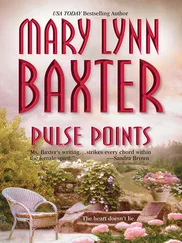An Oval Office meeting with Dad and ( from left ) Andy Card, John Sununu, and Lee Atwater in 1989. Two days earlier, Dad had ordered American troops into Panama.
One change Dad did make was to bring Secretary of State James Baker back to the White House as chief of staff. The campaign ran more smoothly with Baker at the helm. Voters began to focus on Bush versus Clinton. The polls narrowed. Then, four days before the election, Lawrence Walsh, the prosecutor investigating the Iran-Contra scandal of the Reagan administration, dropped an indictment on former defense secretary Caspar Weinberger. The indictment dominated the news and halted the campaign’s momentum. Democratic lawyer Robert Bennett, who represented Cap, later called the indictment “one of the greatest abuses of prosecutorial power I have ever encountered.” So much for the independence of the independent counsel.
In the final days before the election, my brother Marvin suggested that I campaign with Dad to help keep his spirits high. I agreed to do it, although I was not in the most upbeat mood. I was especially irritated with the press corps, which I thought was cheerleading for Bill Clinton. At one of the final campaign stops, two reporters from the press pool approached me near the steps of Air Force One. They asked about the atmosphere on the plane. The politically astute response would have been some banality like “He feels this hill can be climbed.” Instead, I unleashed. I told the reporters I thought their stories were biased. My tone was harsh, and I was rude. It was not my only angry blurt of the campaign. I had developed a reputation in the press corps as a hothead, and I deserved it. What the press did not understand was that my outbursts were driven by love, not politics.
Election night came, and Dad did not win. Bill Clinton won 43.0 percent of the vote. Dad ended up with 37.4 percent. Ross Perot took 18.9 percent, including millions of votes that otherwise would have gone for George Bush. Dad handled the defeat with characteristic grace. He called early in the evening to congratulate Bill, laying the foundation for one of the more unlikely friendships in American political history.
Dad had been raised to be a good sport. He blamed no one; he was not bitter. But I knew he was hurting. The whole thing was a miserable experience. Watching a good man lose made 1992 one of the worst years of my life.
The morning after the election, Mother said, “Well, now, that’s behind us. It’s time to move on.” Fortunately for me, baseball season was never too far away. In the meantime, I trained for the Houston marathon, which I ran on January 24, 1993—four days after Dad left office. I was holding my 8:33-per-mile pace when I passed Mother and Dad’s church around mile 19. The 9:30 a.m. service had just ended, and my family was gathered on the curb. I had a little extra spring in my step for the gallery. Dad encouraged me in his typical way. “That’s my boy!” he yelled. Mother had a different approach. She shouted, “Keep moving, George! There are some fat people ahead of you!” I finished in three hours, forty-four minutes. I felt ten years younger at the finish line and ten years older the next day.

Just as I had once run to rid my body of alcohol, the marathon helped purge the disappointment I felt about 1992. As the pain began to fade, a new feeling replaced it: the itch to run for office again.
It started gradually. When Laura and I moved back to Texas in 1988, I became more aware of the challenges facing the state. Our education system was in trouble. Children who couldn’t read or do math were shuffled through the system without anyone bothering to ask what, or if, they had learned.
The legal climate in our state was a national joke. Texas personal injury lawyers were ringing up huge jury verdicts and driving jobs out of the state. Juvenile crime was growing. And I worried about a culture of “if it feels good, do it” and “if you’ve got a problem, blame somebody else.”
The dividends of that approach were troubling. More babies were being born out of wedlock. More fathers were abdicating their responsibilities. Dependence on welfare was replacing the incentive to work.
My experiences on Dad’s campaigns and running the Rangers had sharpened my political, management, and communications skills. Marriage and family had broadened my perspective. And Dad was now out of politics. My initial disappointment at his loss gave way to a sense of liberation. I could lay out my policies without having to defend his. I wouldn’t have to worry that my decisions would disrupt his presidency. I was free to run on my own.
I wasn’t the only one in the family who reached that conclusion. In the spring of 1993, Jeb told me he was seriously considering running for governor of Florida. In an ironic way, Dad’s defeat was responsible for both our opportunities. What had first seemed like the sad end to a great story now looked like the unlikely beginning of two new careers. Had Dad won in 1992, I doubt I would have run for office in 1994, and I almost certainly would not have become president.
The big question was how to get involved. I asked for advice from a close friend, political strategist Karl Rove. I first met Karl in 1973, when Dad was chairman of the Republican National Committee and Karl was the head of the College Republicans. I assumed he would be another one of the campus politician types who had turned me off at Yale. I soon recognized that Karl was different. He wasn’t smug or self-righteous, and he sure wasn’t the typical suave campaign operator. Karl was like a political mad scientist—intellectual, funny, and overflowing with energy and ideas.
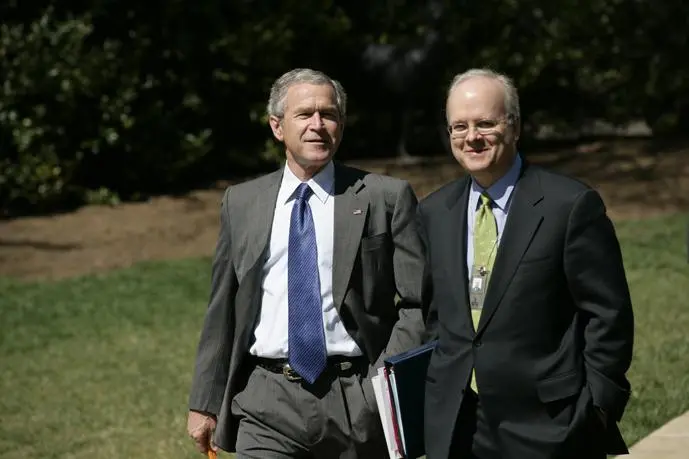
With Karl Rove, my political mad scientist. White House/Eric Draper
Nobody I know has read or absorbed more history than Karl. I say that with confidence because I’ve tried to keep up. A few years ago, Karl and I squared off in a book reading contest. I jumped out to an early lead. Then Karl accused me of gaining an unfair advantage by selecting shorter works. From that point forward, we measured not only the number of books read, but also their page count and total lateral area. By the end of the year, my friend had dusted me in all categories.***
Karl didn’t just amass knowledge, he used it. He had studied William McKinley’s 1896 election strategy. In 1999, he suggested that I organize a similar front-porch campaign. It turned out to be a wise and effective approach. I regretted not working with Karl during my congressional run in 1978. I never made that mistake again.
In 1993, Karl and I both saw a political opportunity. The conventional wisdom was that Texas Governor Ann Richards was guaranteed reelection the next November. Texas’s first woman governor since the 1930s, Ann Richards was a political pioneer. She had a large following among national Democrats and, many believed, a chance to be president or vice president someday.
Everyone said the governor was popular, but Karl and I didn’t think she had actually accomplished much. Karl told me his analysis showed that many Texans—even some Democrats—would be open to a candidate with a serious program to improve the state. That was exactly what I had in mind.
In a spring 1993 special election, Governor Richards placed a school funding measure on the ballot. Derisively dubbed “Robin Hood,” her plan redistributed money from rich districts to poor ones. The voters defeated it by a healthy margin. As Laura and I watched election returns that night, we listened to an interview by Ann Richards. She was frustrated by the defeat of the school funding measure and said sarcastically, “We are all, boy, eagerly awaiting any suggestions and ideas that are realistic.”
Читать дальше








